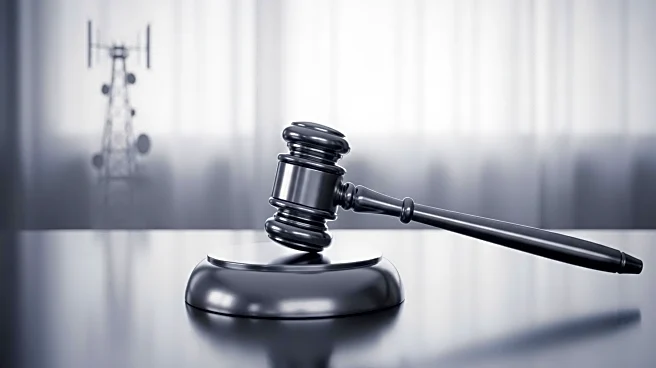What is the story about?
What's Happening?
The Trump administration is pursuing increased control over independent agencies, including the Federal Communication Commission (FCC). This effort is part of a broader push to apply the unitary executive theory, which posits that executive power should be centralized with the president, allowing him to fire agency commissioners at will. The administration is challenging legal precedents that protect board members from at-will firing, with a Supreme Court case scheduled for December. FCC Chairman Brendan Carr, aligned with Trump, has made controversial comments regarding broadcaster actions, raising concerns about free speech.
Why It's Important?
The potential shift in control over independent agencies like the FCC could significantly alter the landscape of U.S. governance and regulatory oversight. If successful, the Trump administration's efforts could lead to increased presidential influence over agencies traditionally designed to operate independently, affecting decisions on broadcasting, media mergers, and public interest regulations. This move raises concerns about the erosion of free speech protections and the independence of regulatory bodies, with implications for media companies, investors, and the broader public.
What's Next?
The Supreme Court's upcoming case will be pivotal in determining the extent of presidential control over independent agencies. A ruling in favor of the Trump administration could set a precedent for increased executive power, potentially leading to further legal challenges and policy shifts. Stakeholders, including media companies, legal experts, and civil rights organizations, are likely to engage in debates and advocacy efforts to influence the outcome and address concerns about free speech and agency independence.
Beyond the Headlines
The application of the unitary executive theory could lead to long-term changes in the balance of power between the executive branch and independent agencies. This shift may prompt discussions about the constitutional implications and the role of checks and balances in U.S. governance. The controversy surrounding FCC Chairman Brendan Carr's comments highlights the potential for political influence over media regulation, raising ethical questions about the protection of free speech and the independence of regulatory bodies.















